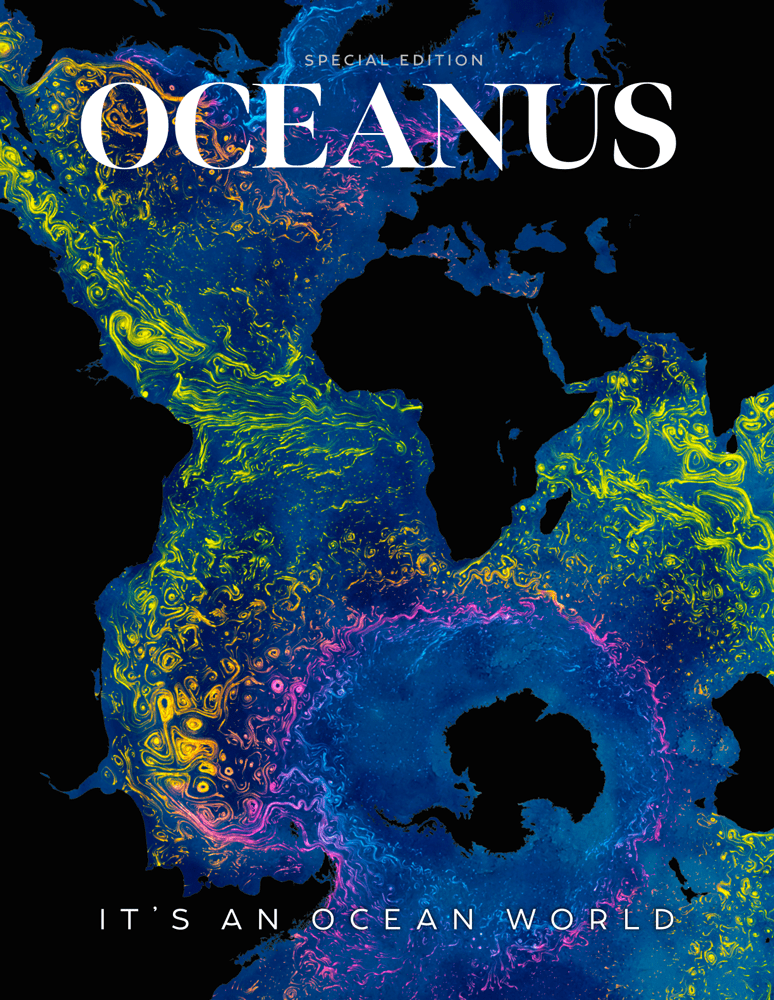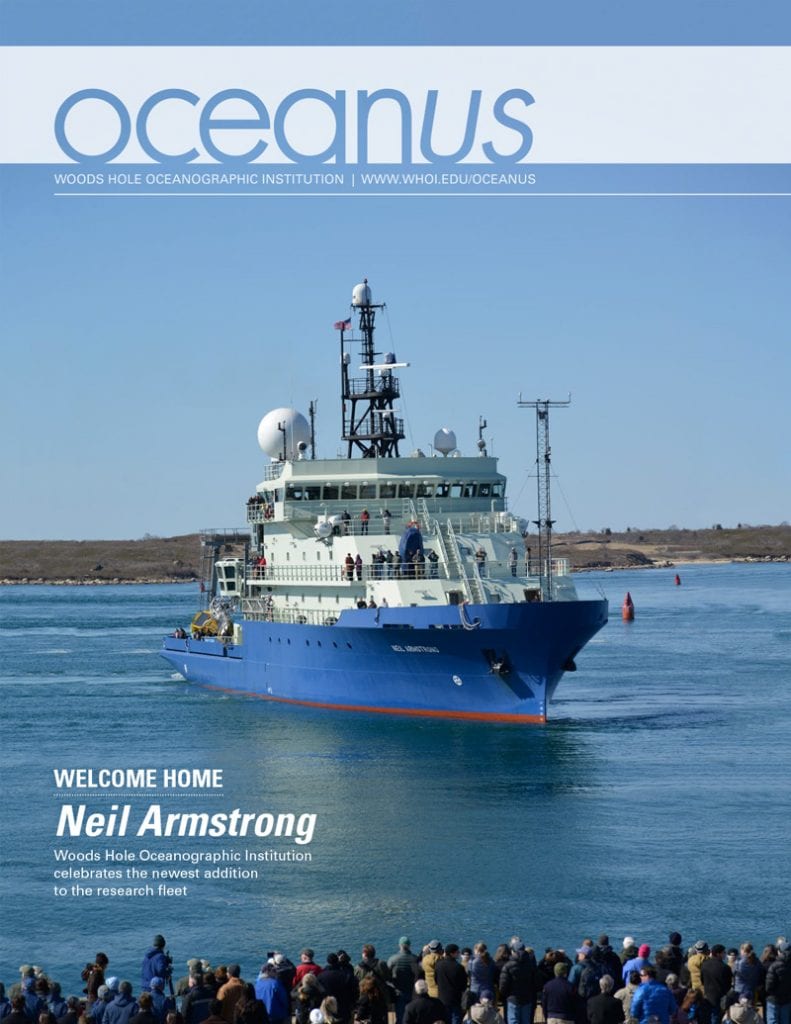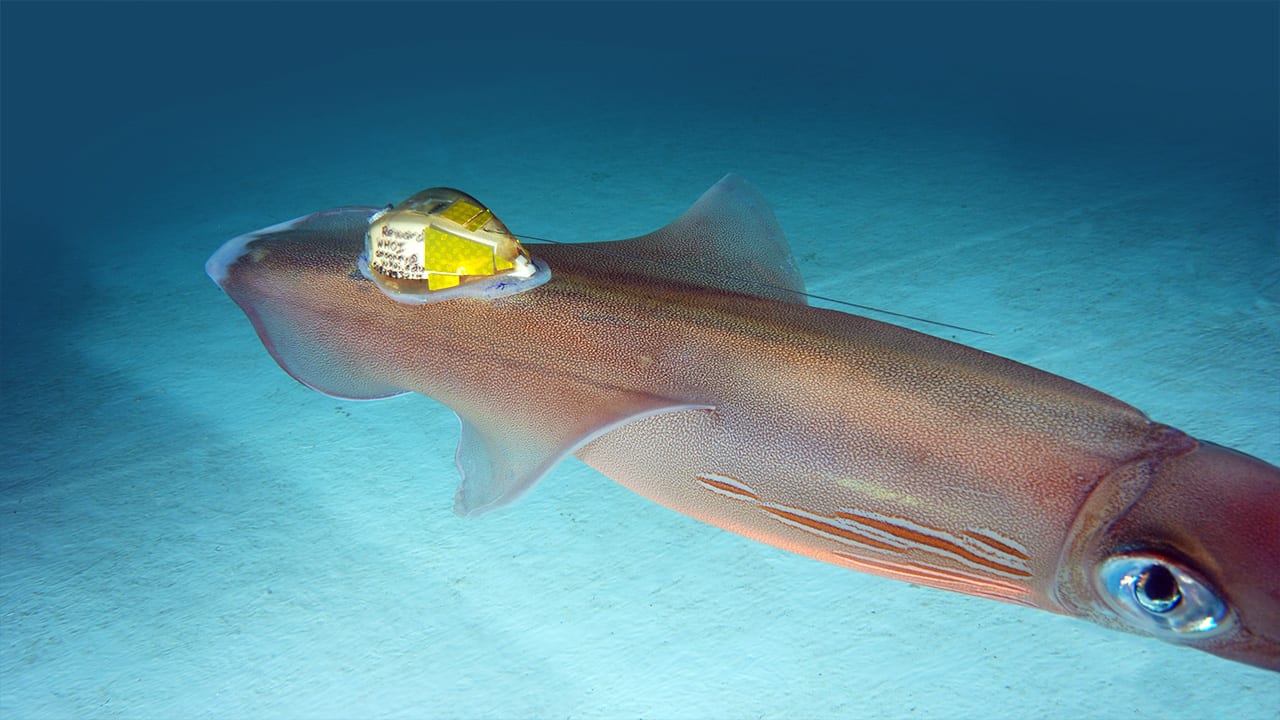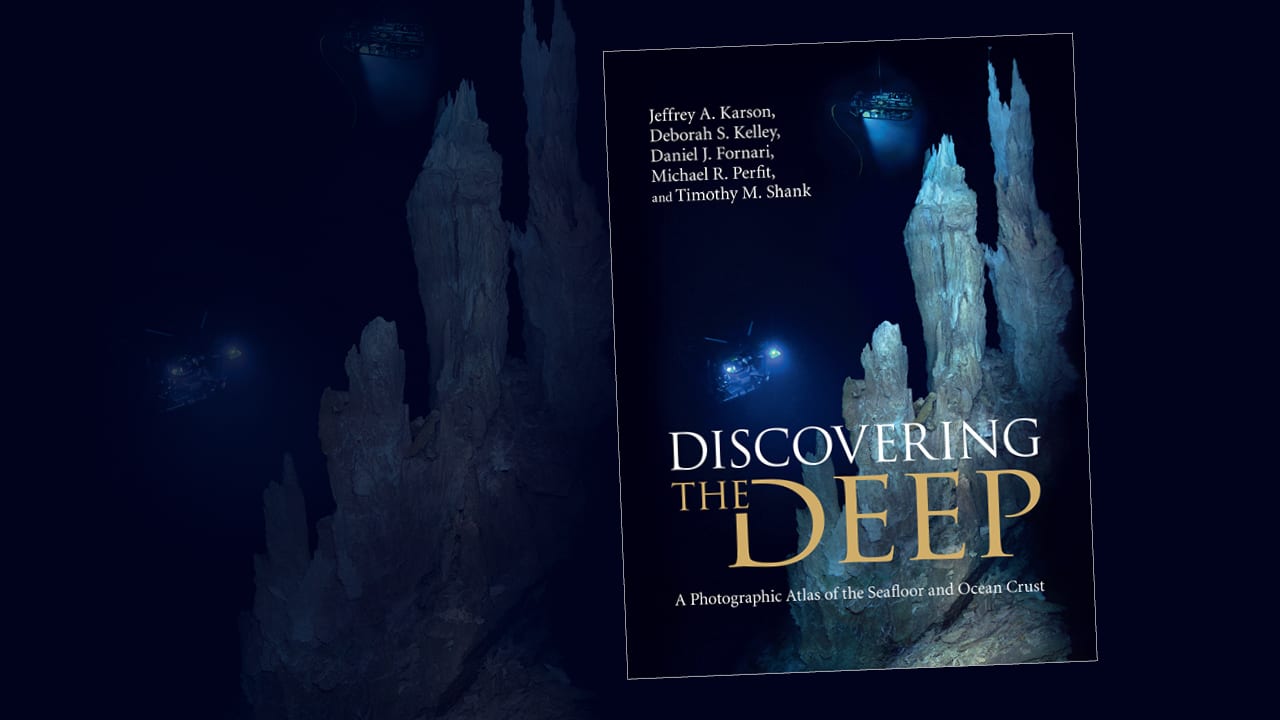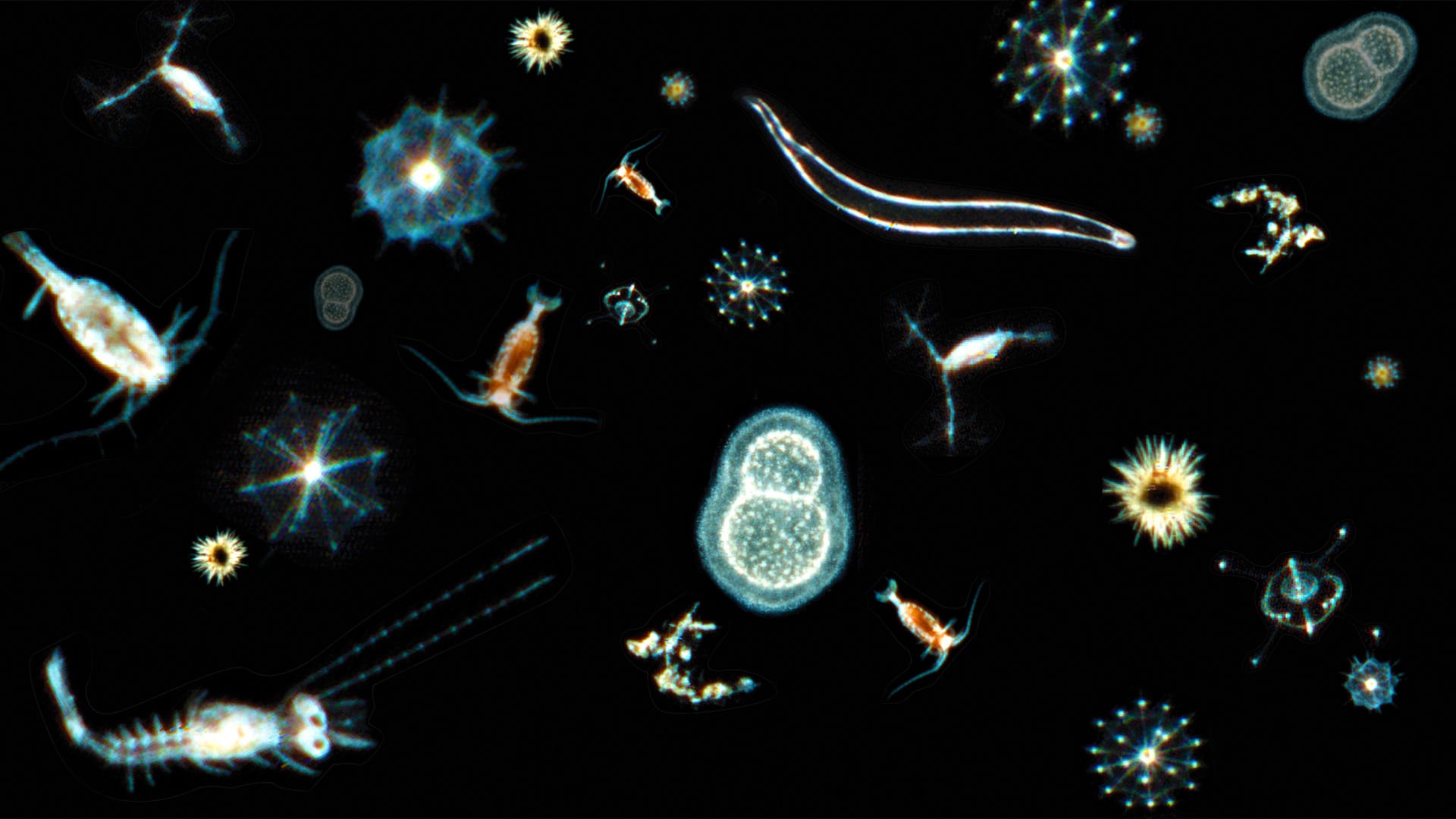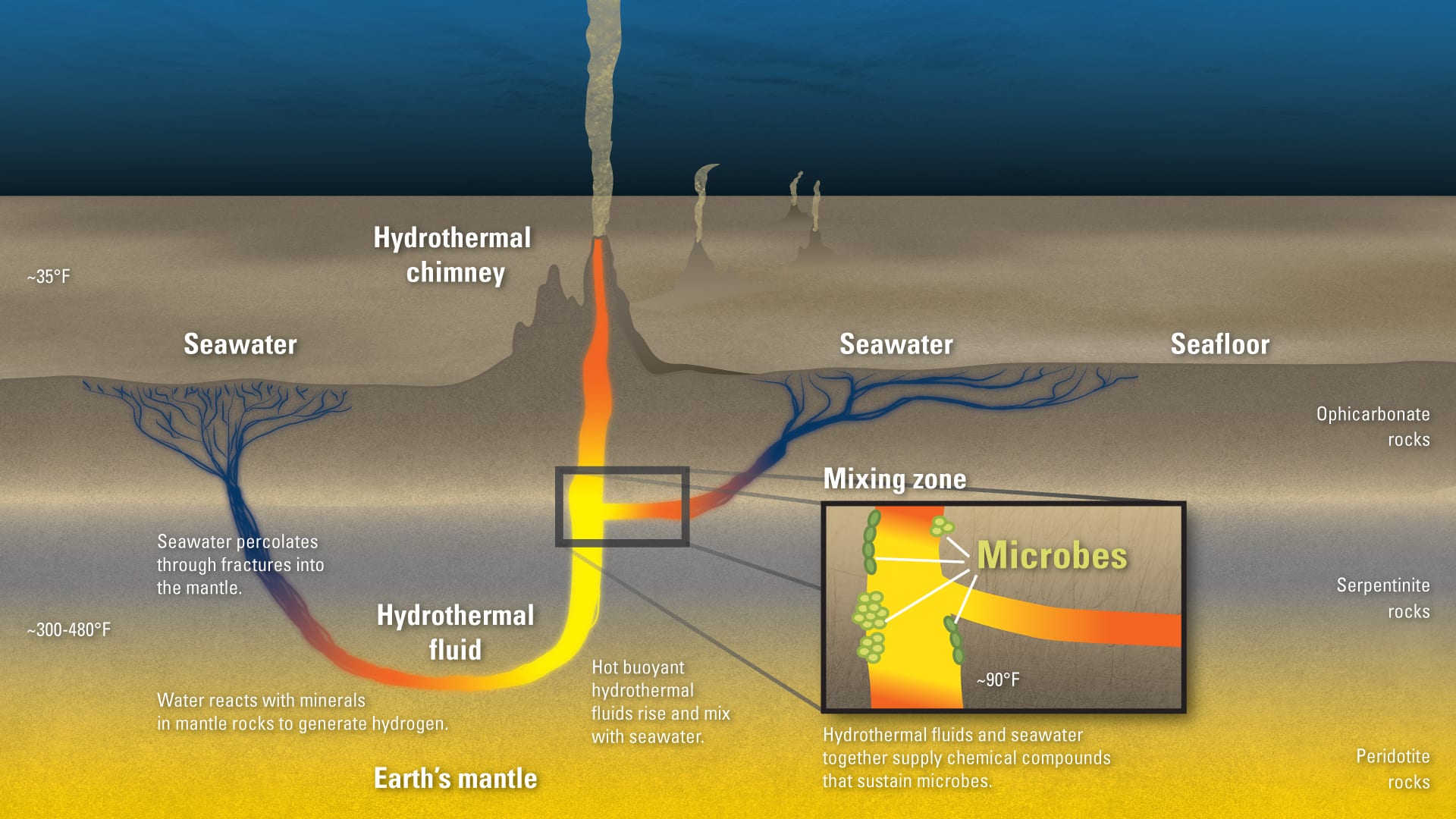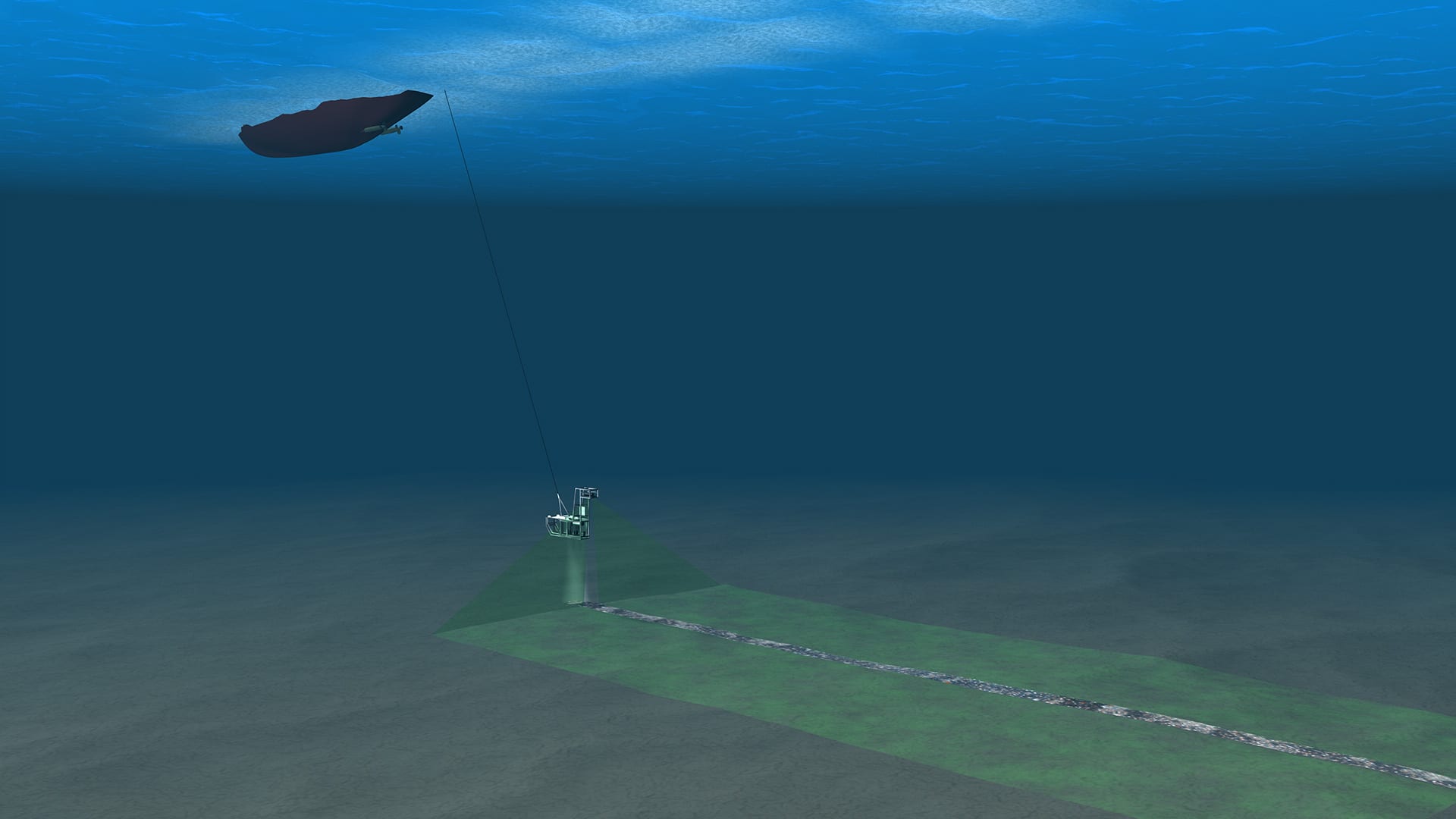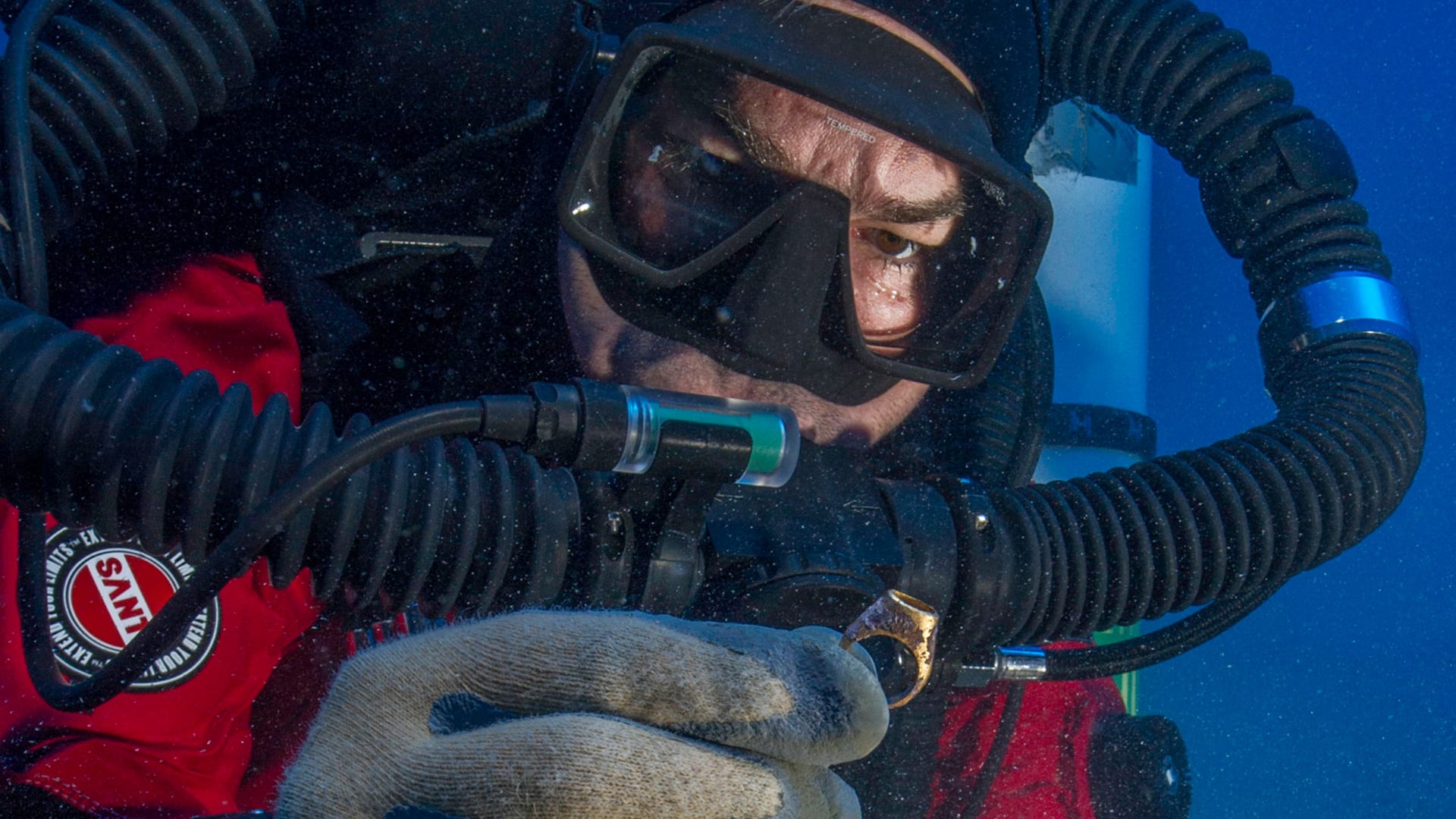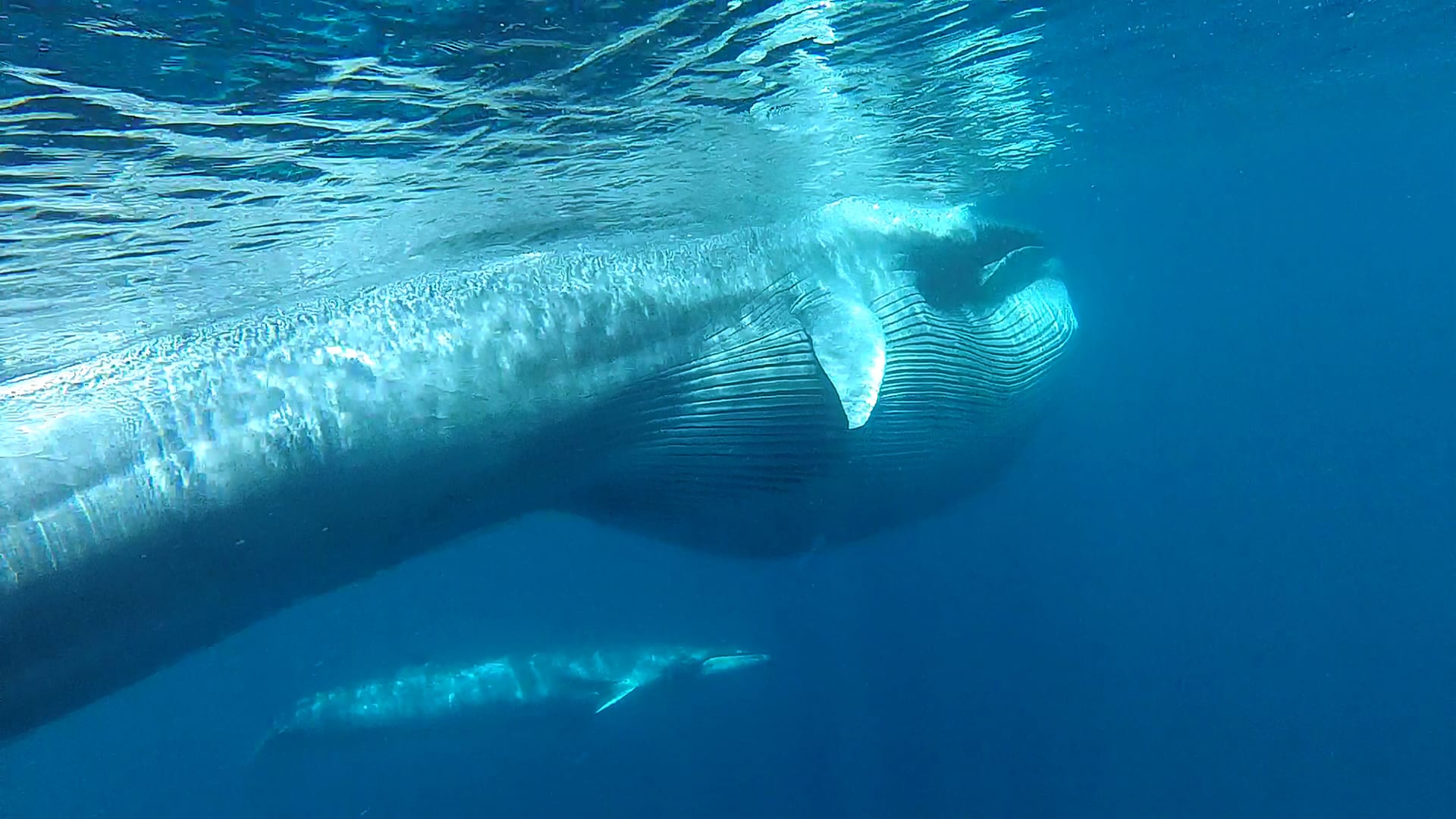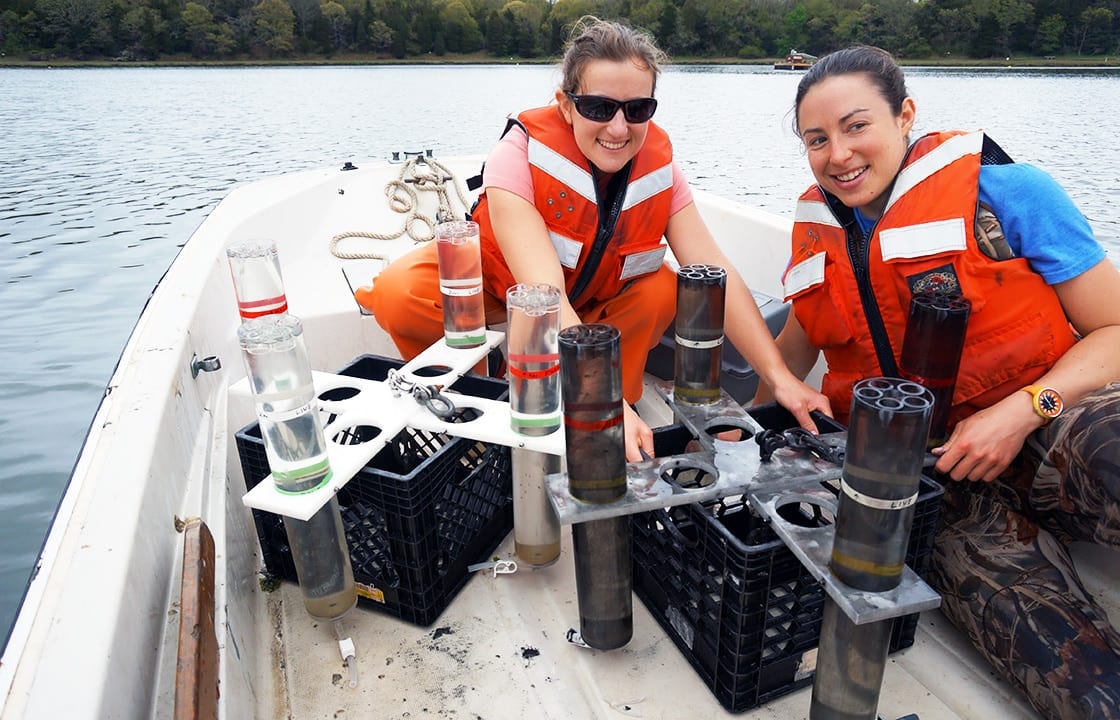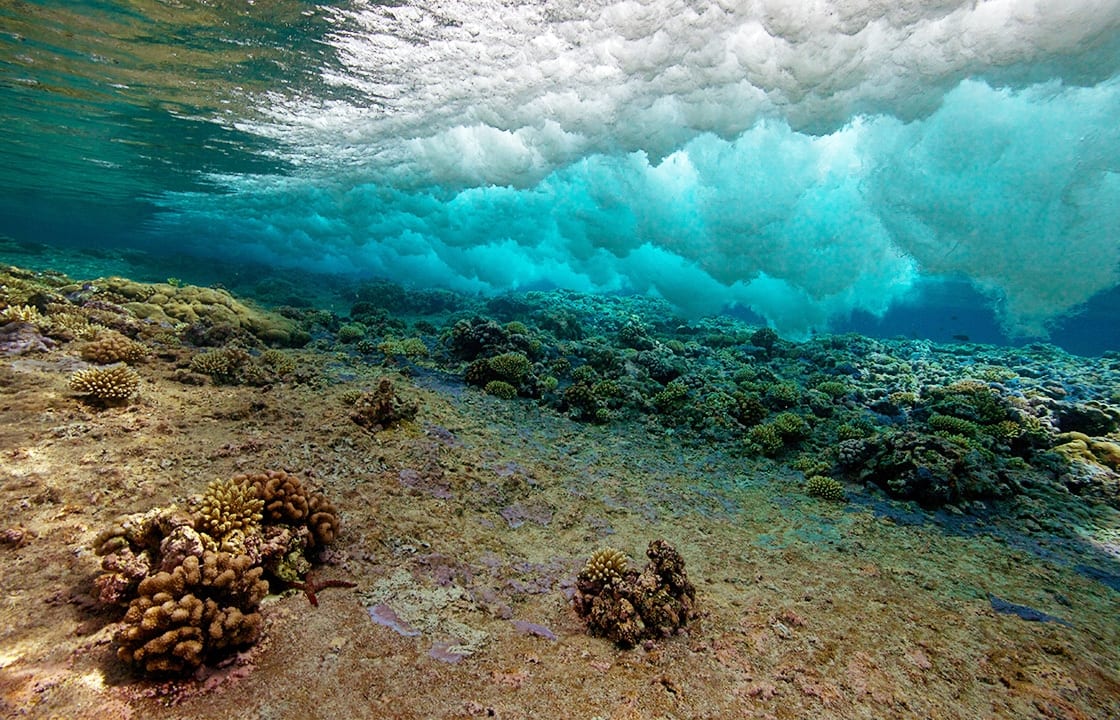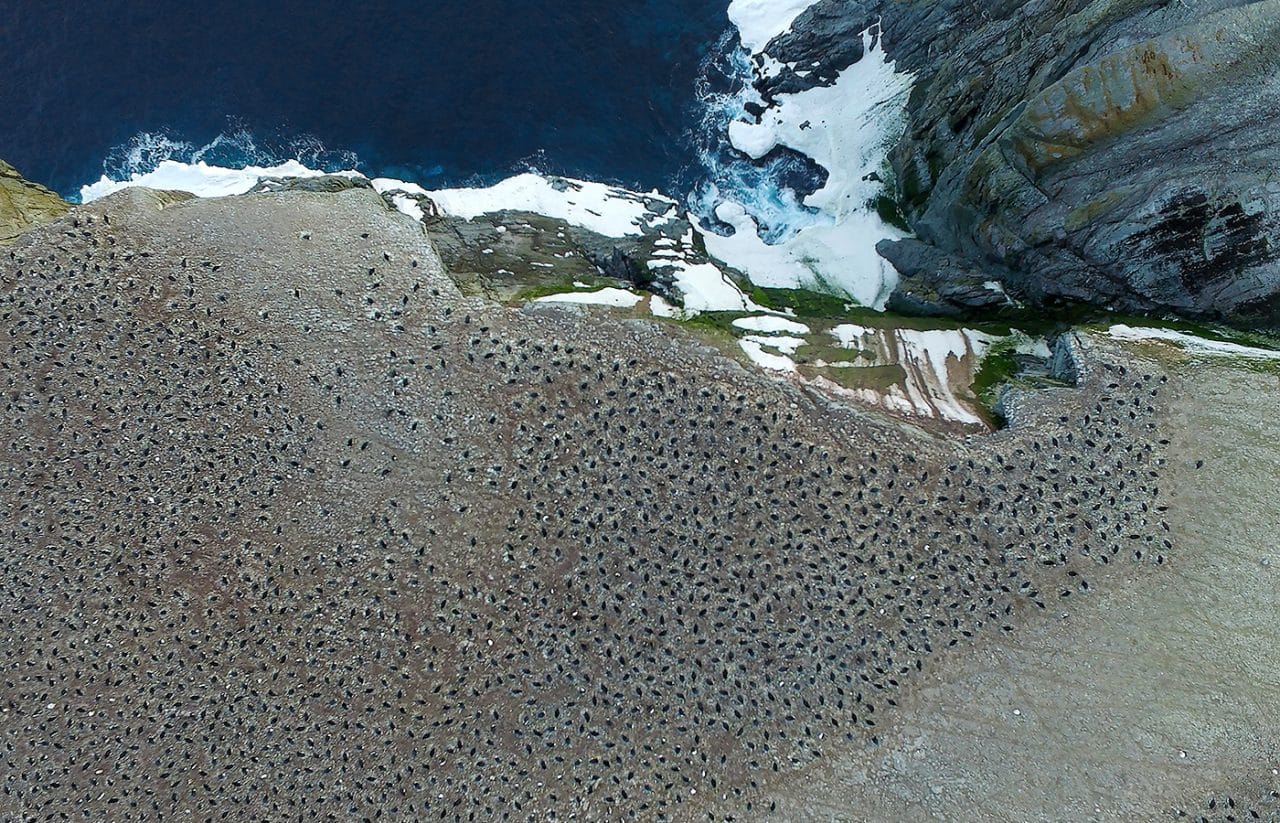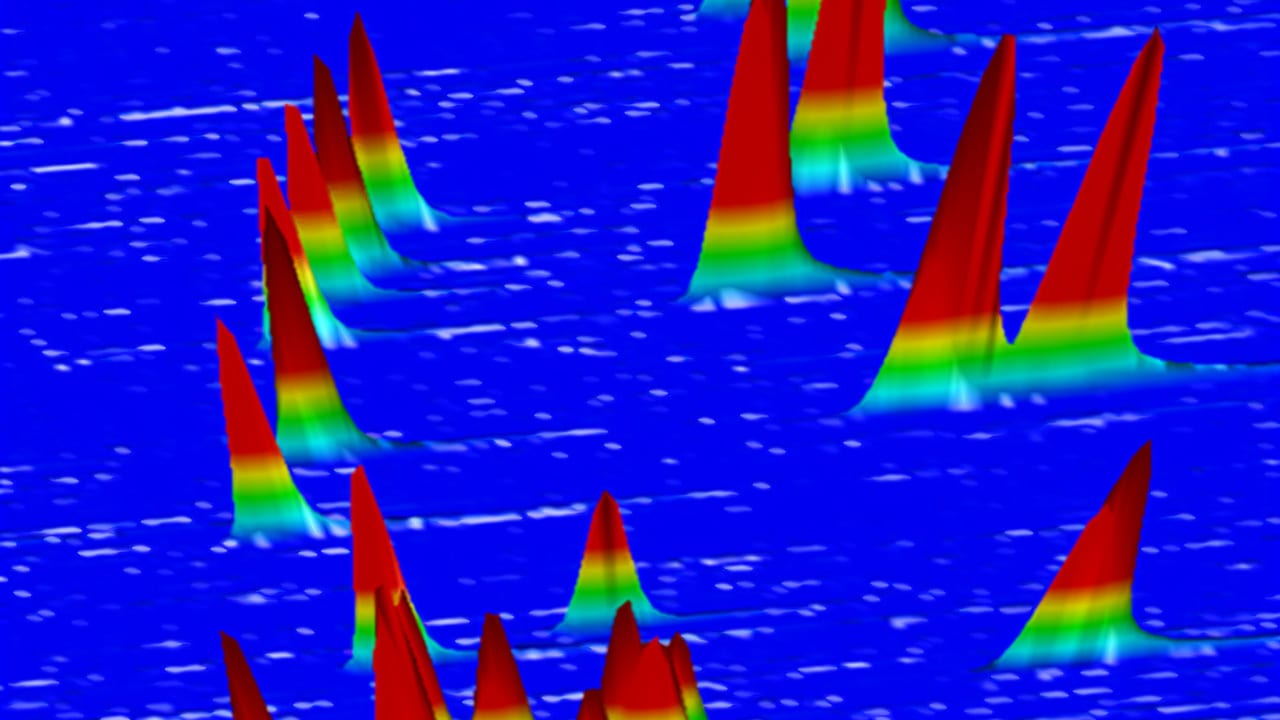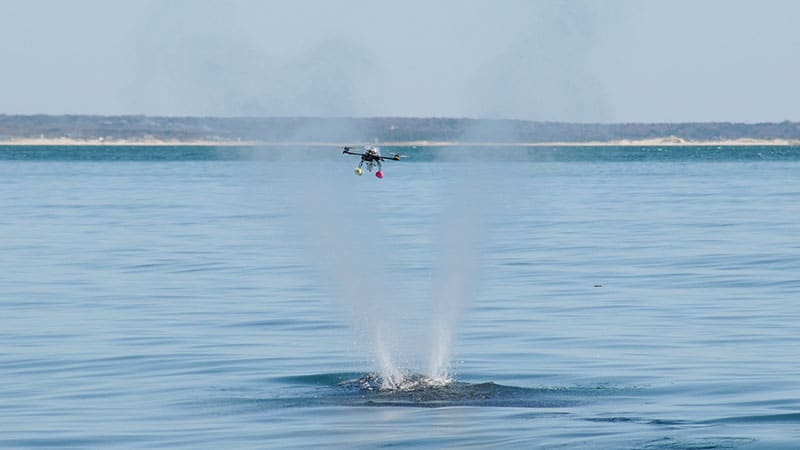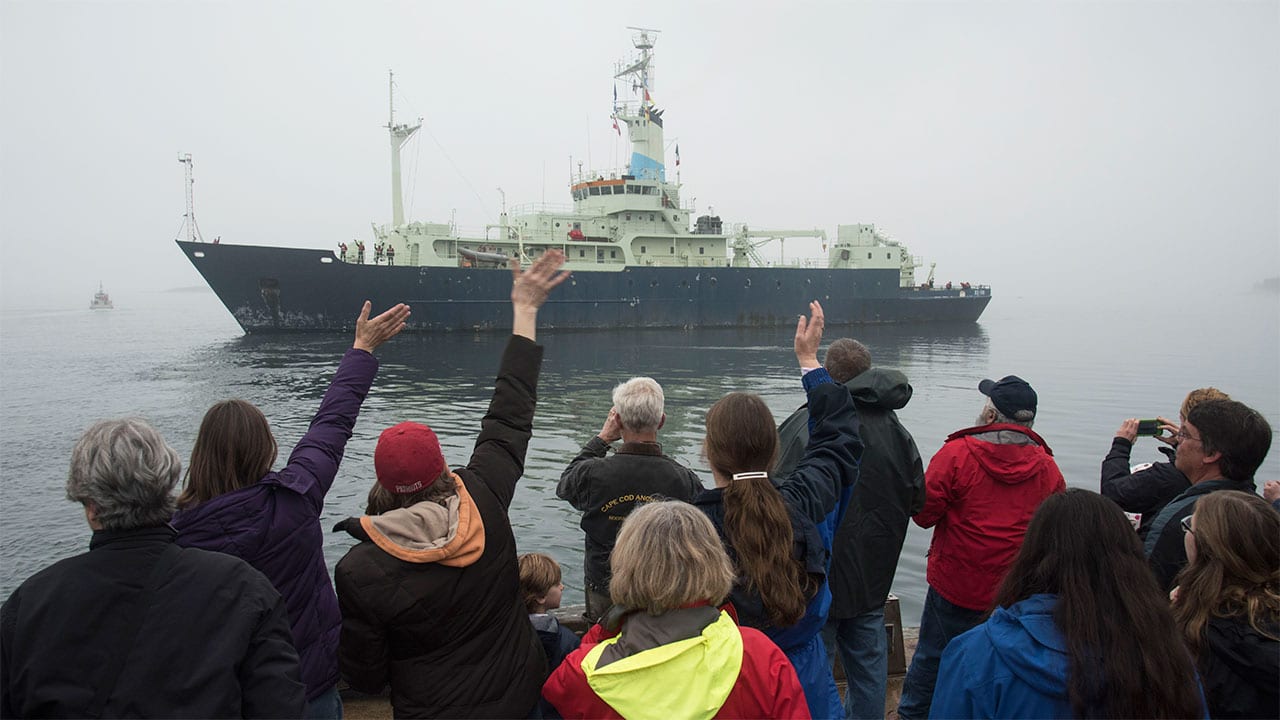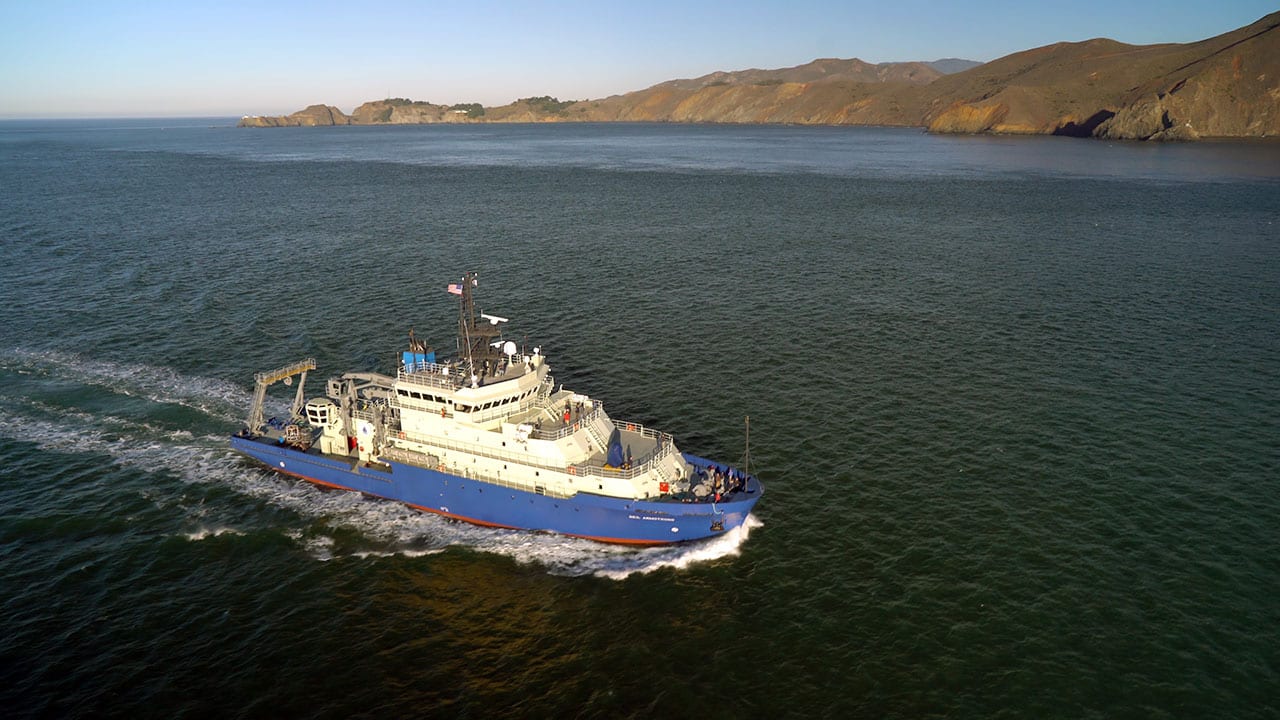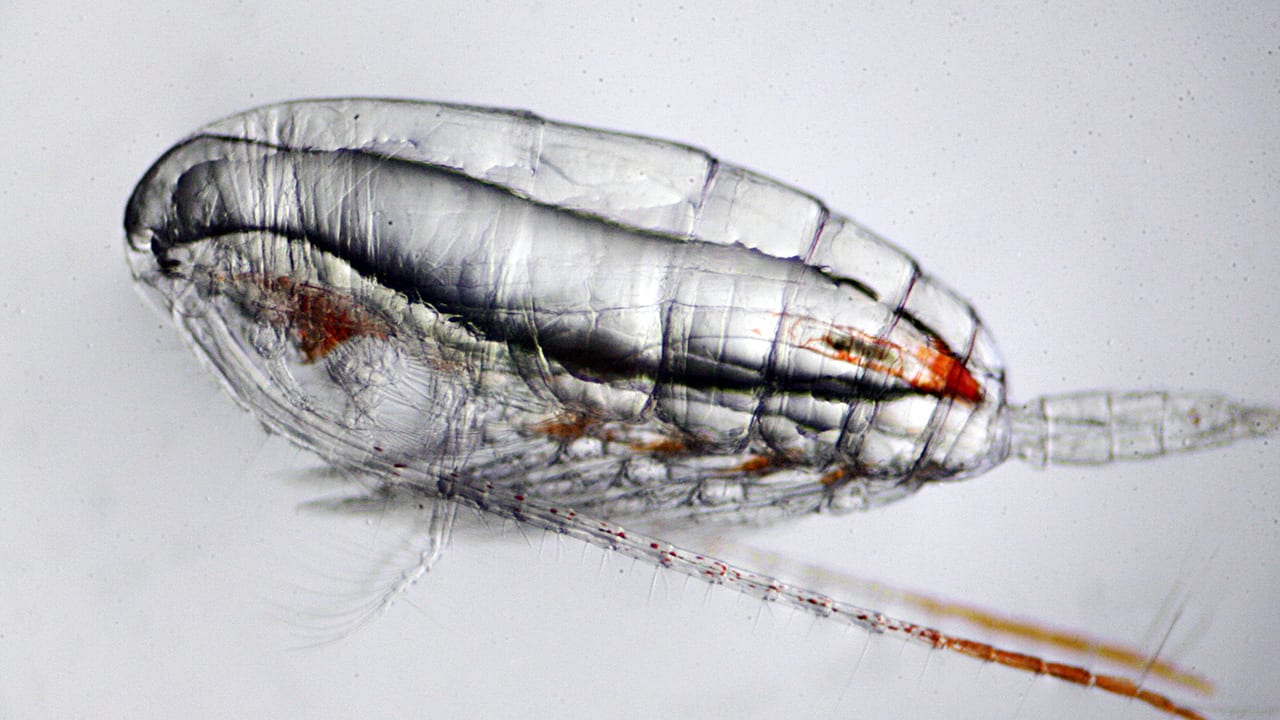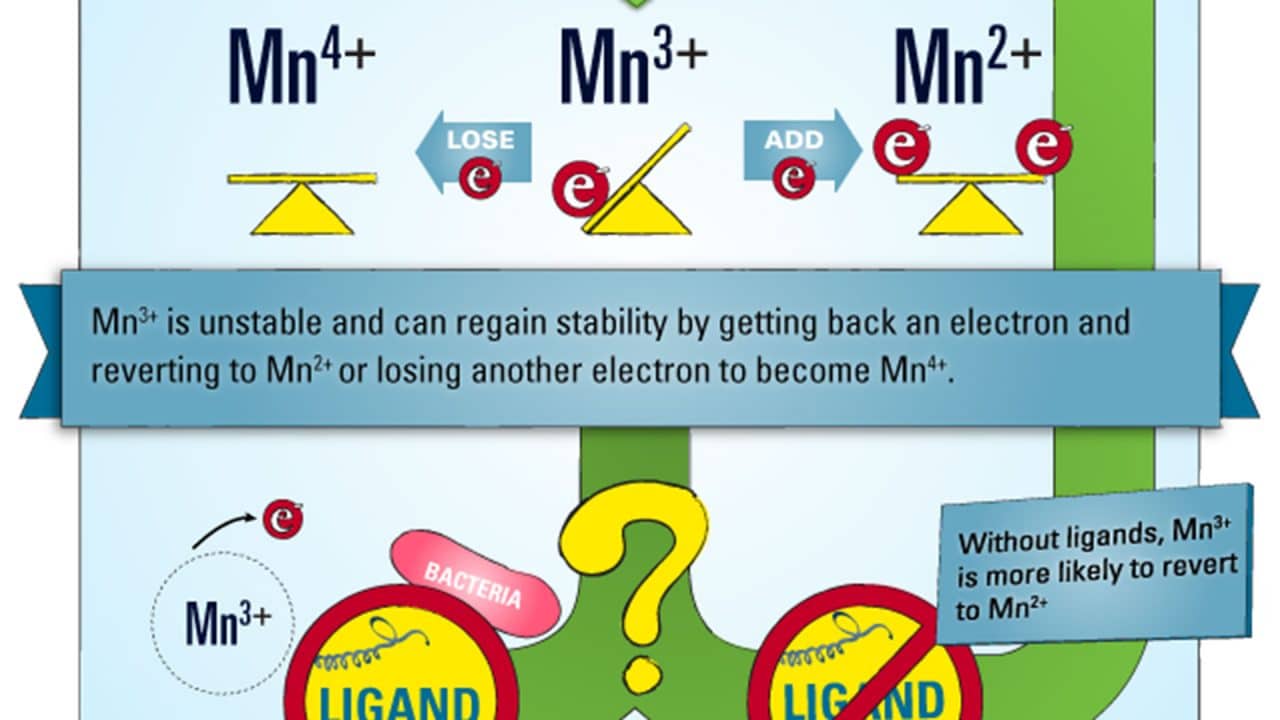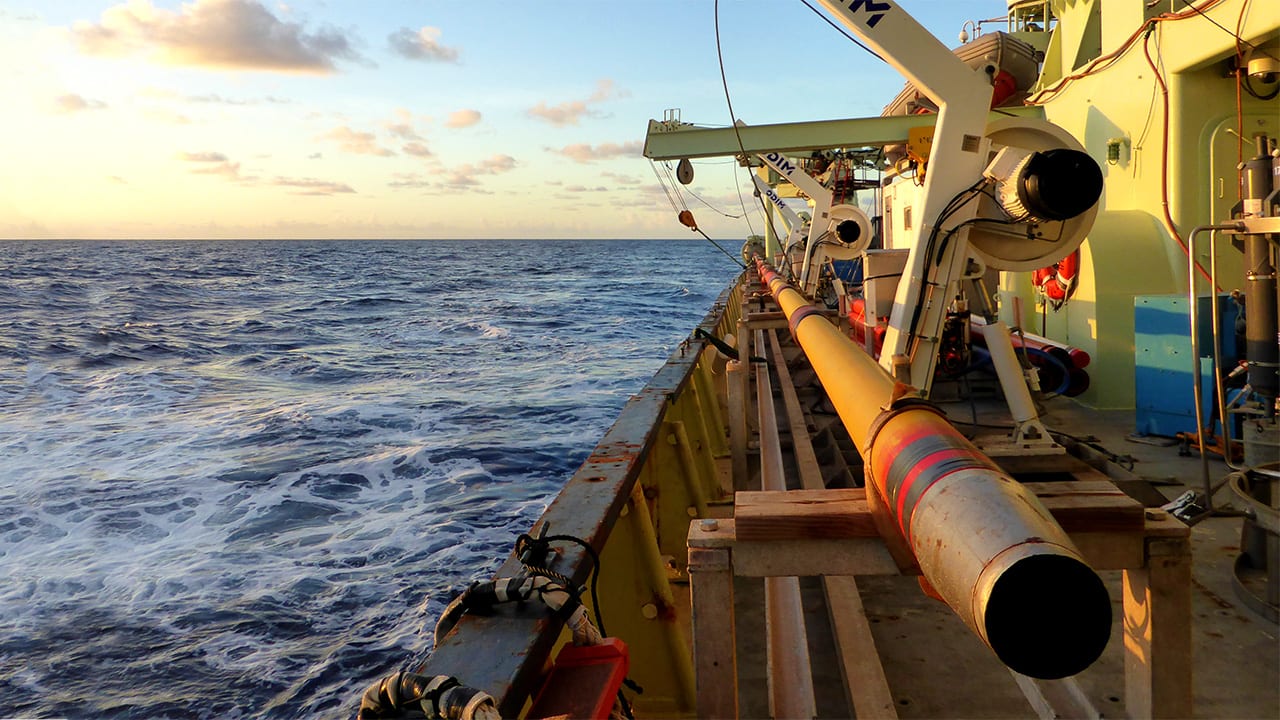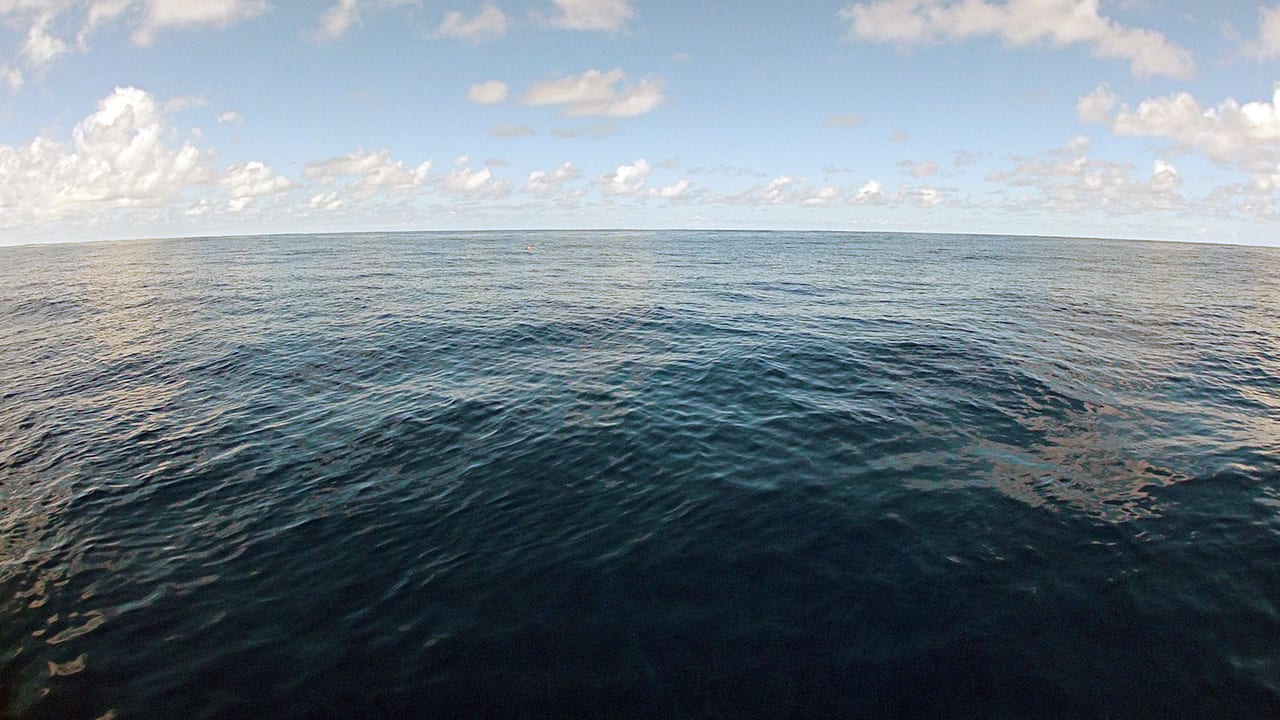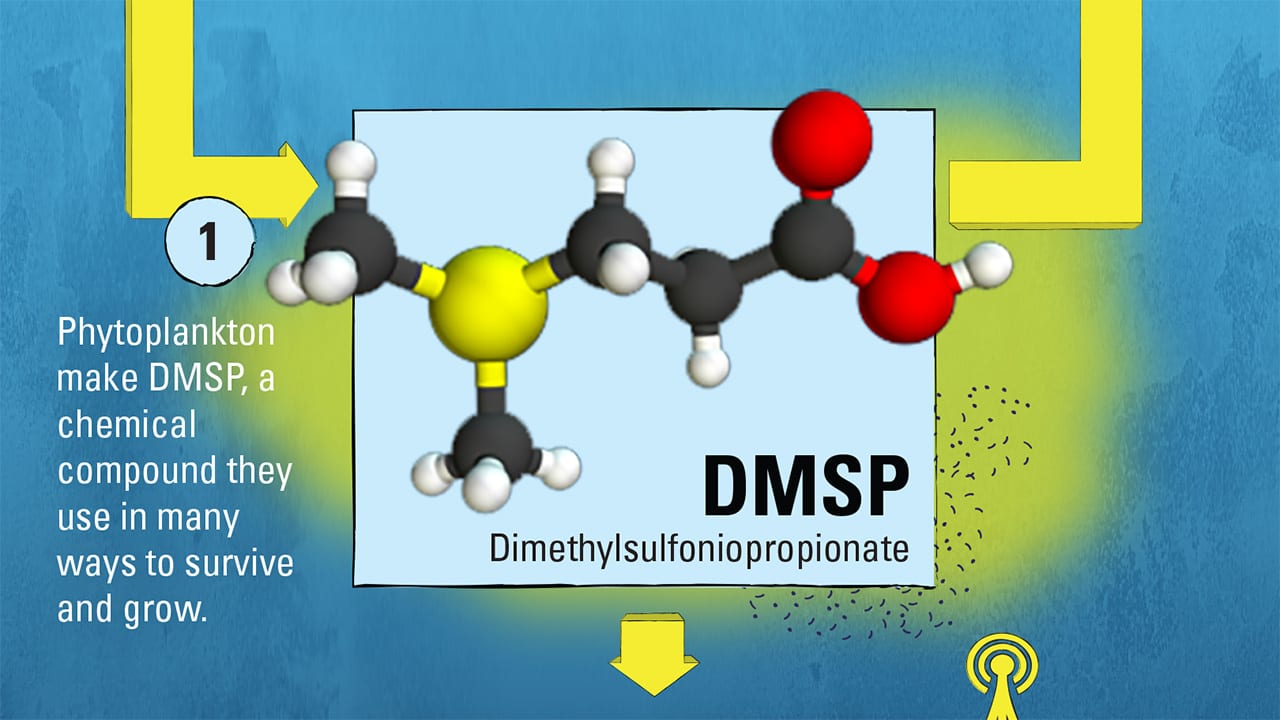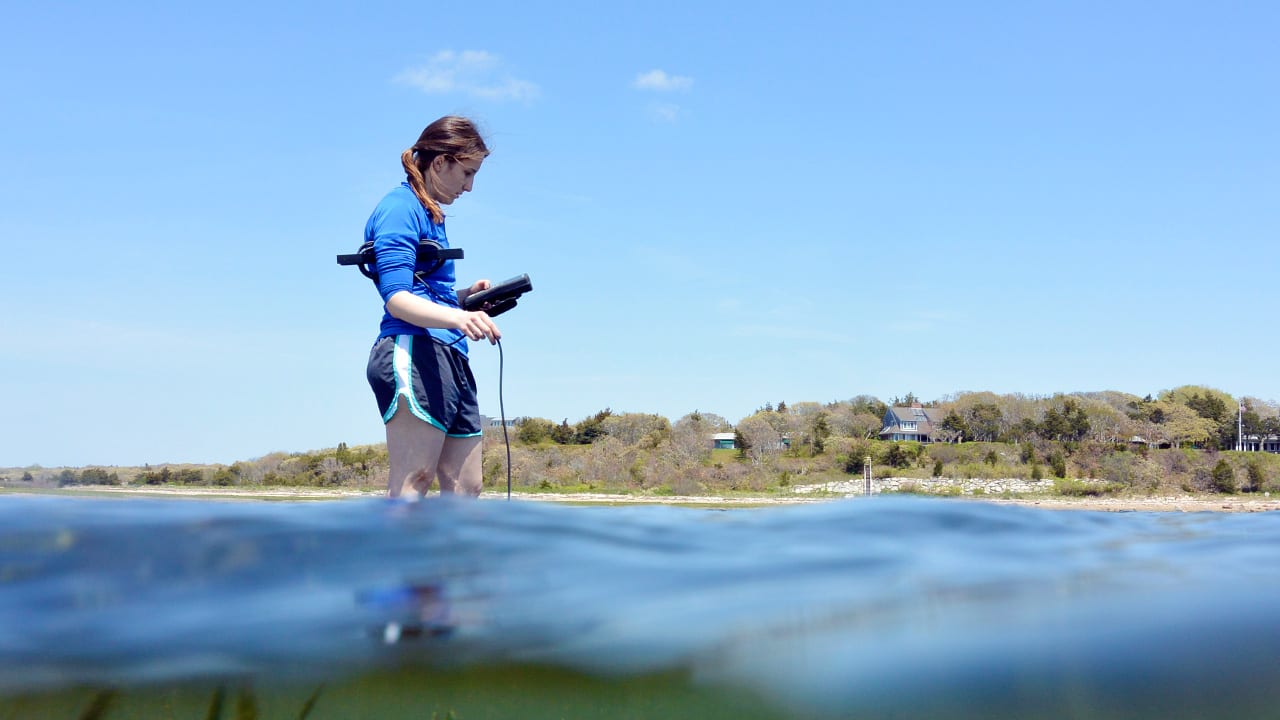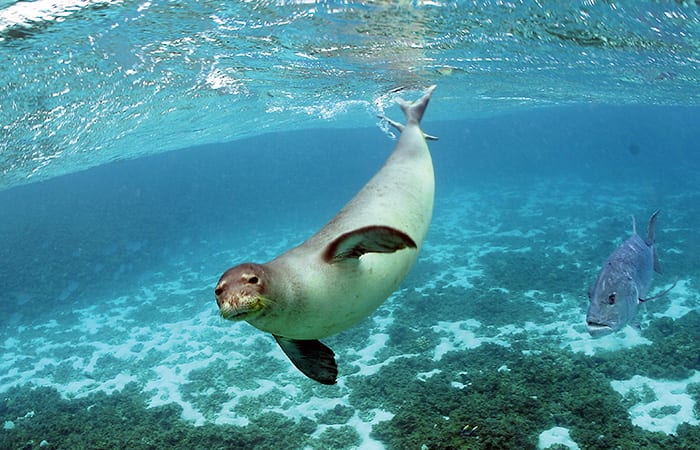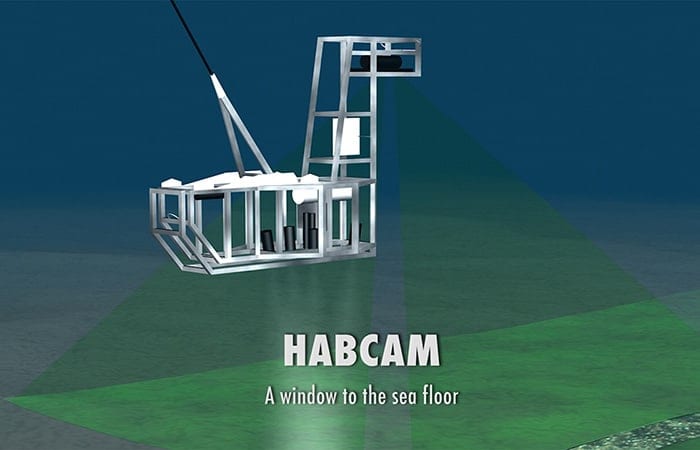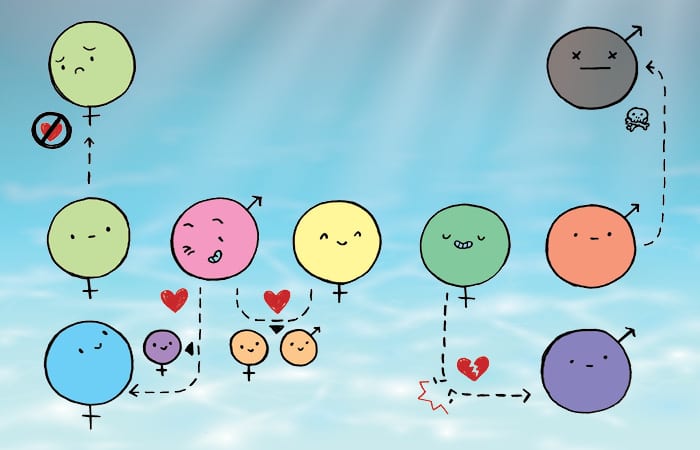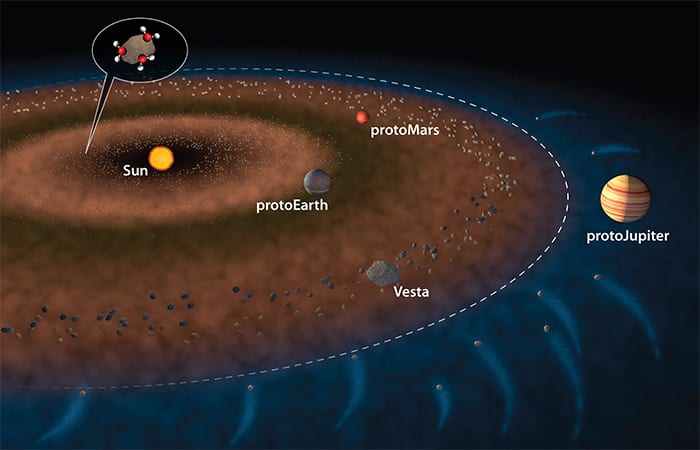Oceanus Online Archive
Tagging a Squishy Squid
For more than a decade, researchers have been tagging large marine mammals such as dolphins and whales to reveal their behavior. But tagging small, soft animals such as jellyfish and…
Read MoreThe Bottom of the Ocean On Top of Your Coffee Table
Here’s a way to journey to the seafloor without leaving your living room or classroom. Five deep-sea scientists have created a comprehensive, lavishly illustrated book that transports readers to Earth’s…
Read MoreIlluminating an Unexplored Undersea Universe
Twenty-five years ago, the Hubble Telescope was launched to look out to the vast darkness of outer space. It captured thousands of images of previously unknown stars, galaxies, and clouds…
Read MoreMummified Microbes
Scientists have found evidence that microbes can thrive deep below the seafloor—sustained by chemicals produced by reactions between seawater and rocks in Earth’s mantle. It’s difficult to gain direct access…
Read MoreA New Eye on Deep-Sea Fisheries
Imagine that officials charged with setting deer-hunting limits had to assess the herd’s abundance by flying over forests at night. That’s a little like what the National Marine Fisheries Services…
Read MoreA Luxury-Laden Shipwreck from 65 B.C.
Scientists returned in 2015 and 2016 to the wreck of a 180-foot ship that sank off the Greek island of Antikythera around 65 B.C., and recovered luxury items that included…
Read MoreA New Whale Species Is Discovered in the Wild
Scientists have discovered a thriving population of Omura’s whales—a species that hadn’t even been identified until 2003 and had never before been documented in the wild. Omura’s whales were misidentified…
Read MoreNot Just Another Lovely Summer Day on the Water
It looks like nice summer day on the water, but Alexis Fischer (right) and Alice Alpert, graduate students in the MIT-WHOI Joint Program, are hard at work preparing instruments called…
Read MoreCoral Coring
Off a small island in the Chagos archipelago in the Indian Ocean, Woods Hole Oceanographic Institution (WHOI) biogeochemists Konrad Hughen and Colleen Hansel use a special underwater drill to take…
Read MoreSee Those Black Dots? They’re Penguins. Now Count Them.
That’s exactly what a team of researchers from Woods Hole Oceanographic Institution (WHOI) did on a recent expedition to the Danger Islands off the Antarctic Peninsula. The islands are home…
Read MoreA Faster Way to Better Reactions
Finding new chemical reactions to synthesize commercial products more efficiently is big business and a major source of innovation. A new study offers a way to make the search faster, cheaper, and greener.
Read MoreEndangered Whales Get a High-Tech Check-Up
Drones seem to be everywhere these days, from backyards to battlegrounds. Scientists are using them too: in this case, to assess the health of endangered North Atlantic right whales. Since drones are small and quiet, they can fly close to whales without disturbing them, bringing back incredibly detailed photographs and samples of microbe-rich blow.
Read MoreRemembering Knorr
After an iconic, 44-year career, the research vessel Knorr left the dock at Woods Hole Oceanographic Institution in March for the last time. It also left a place in the hearts of many who sailed on the ship or who had simply seen it in Woods Hole. A few of the people who watched it depart shared their memories of Knorr in this audio postcard.
Read MoreOur Ship Comes In
The long-awaited newest research vessel in the U.S. academic fleetâand the latest in a long line of WHOI-operated shipsâarrives in Woods Hole on Wednesday.
Read MoreJourney Into the Ocean’s Microbiomes
Bacteria in the ocean, including pathogenic ones, often hitchhike on tiny crustaceans called copepods. A graduate student explored their complex relationships.
Read MoreMinerals Made by Microbes
Some minerals actually don’t form without a little help from microscopic organisms, using chemical processes that scientists are only beginning to reveal.
Read MoreThrough the Looking-Glass of the Sea Surface
Scientists are using new technology to make previously impossible measurements at the turbulent ocean surface—a crucial junction for energy exchange between the air above and the sea below.
Read MoreA Mighty Mysterious Molecule
What gives sea air its distinctive scent? A chemical compound called dimethylsulfide. In a new study, WHOI scientists show that the compound may also be used by marine microbes to communicate with one another.
Read MoreRecipes for Antibiotic Resistance
MIT-WHOI graduate student Megan May is investigating how microbes naturally develop resistance to antibiotic compounds in the marine environment and how human activities, including overuse of drugs and pollution, may be affecting the dynamic.
Read MoreSeal Whiskers Inspire Marine Technology
The night approaches quickly. A harbor seal plunges into the water, diving deep as the sunlight recedes. Through the dark, turbid waters, she searches for fish. Suddenly, the whiskers on…
Read MoreSex, Games, and the Evolution of Gender Gaps
Population models can help us plan breeding programs for endangered species and understand the evolution of sex ratios.
Read MoreHow Did Earth Get Its Ocean?
Adam Sarafian overcame a learning disability and surmounted heights as a an All-American pole-vaulter—all before launching a scientific career that has now allowed him to hurtle across the universe and back through time to the period when Earth was still forming.
Read More